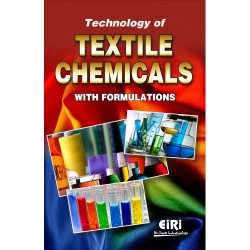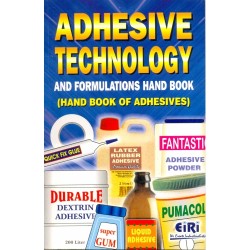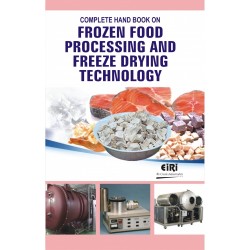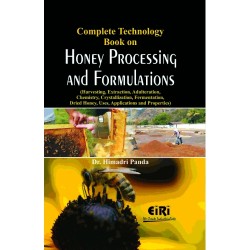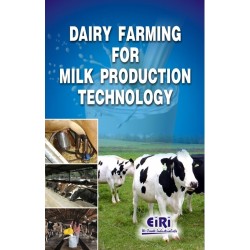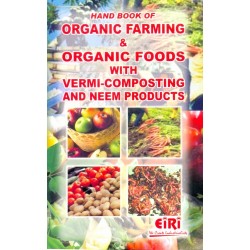MODERN TECHNOLOGY OF ACID SLURRY, SURFACTANTS, SOAP AND DETERGENTS WITH FORMULAE(E-BOOK)

- More than 40 years of experience
- Managed by expert industrial consultants
- ISO 9001-2015 Certified
- Registered under MSME, UAM No: DL01E0012000
- 24/5 Research Support
Get your quesries resolved from an industry expert. Ask your queries before report or book purchase. - Custom Research Service
Speak to the our consultant to design an exclusive study to serve your research needs. - Quality Assurance
All reports are prepared by highly qualified consultants & verified by a panel of experts. - Information Security
Your personal & confidential information is safe & secure.
The Book Modern Technology of Acid Slurry, Surfactants, Soap and Detergents with Formulae covers almost all the basic and advanced details to setup own Unit. The Book Covers Soap, Fatty Acids and Synthetic Detergents, Detergent Componentsg, Surfactants, Builders, Raw Materials, Analysis and Testing, Manufacture of Acid Slurry, Manufacture of Soap, Surfactants, Manufacture of Synthetic Detergents, Detergent soap and Additives. The book has been written for the benefit and to prove an asset and a handy reference guide in the hands of new entrepreneurs & well established industrialists.
The book Modern Technology of Modern Technology of Acid Slurry, Surfactants, Soap and Detergents with Formulae covers Soap, Fatty Acids and Synthetic Detergents, Detergent Components, Surfactants, Builders, Raw Materials, Analysis and Testing, Manufacture of Acid Slurry, Manufacture of Soap, Technology of Surfactants, Manufacture of Synthetic Detergents, Detergent Soap and Additives.
The book Modern Technology of Modern Technology of Acid Slurry, Surfactants, Soap and Detergents with Formulae covers
Contents
Soap, Fatty Acids and
Synthetic Detergents
Soap
Introduction
Chemistry
Manufacturing Technology
Raw Materials
Functional Properties of Soap
Manufacturing Processes
Two-Stage Soap Spray Dryer
Fatty Acids
Fractionation and Physical
Separation
Fat Refining
Fat Splitting Processes
Fatty Acid Distillation
Special Separation Methods
Synthetic Detergents
Surfactant Hydrophile-
Hydrophobe Balance
Anionic Surfactants
Non-ionic Surfactants
Amphoteric Surfactants
Alkylolamides
Cationic Surfactants
Detergent Builders
Detergent Additives
Spray Drying
Agglomeration Processing
Liquid Detergent Processing
Detergent Trends
Detergent Components
Surfactants
Builders
Phosphates
Silicates
Zeolites
Soda ash
Oxygen releasing compounds
Sodium chloride
Sodium carboxy methyl cellulose68
Chelating agents
Raw Materials
Soap
Group A. Historical oil-bearing materials
Group B. Newer oil-bearing materials
Group C. Oil-bearing materials
derived as byproducts of
cultivated crops
Detergents
Analysis and Testing
Test for Moisture
Test for Free Fatty Acids
Test for Impurities
Test for Unsaponifiable Matter
Test for Titer
Tests for Colour
Iodine Number (Wijs Method)
Preparation of reagents
Wijs iodine solution
N/10 sodium thiosulphate
Starch paste
Potassium iodide solution
Potassium dichromate solution
Saponification Number
Melting Point Of Fats
Acid Number
Acetyl Value
Cold Test
Smoke, Flash, Fire Tests
Thiocyanogen Value
Volatile Fatty Acids
Bleach Test On Animal Fats
Specific Gravity Of Oils
Test For Marine Animal Oils In Vegetable Oil
Halphen Test For Cottonseed Oil
Baudoin’s Test For Sesame Oil
Bellier’s Test For Groundnut Oil
Fitelson Test For Teaseed Oil
Kreis Test For Rancidity
Test For Hardness In Water
Analysis Of Soap And Soap Products
Sampling And Preparation Of Sample
Test For Moisture
Test For Free Caustic Alkali
Test For Carbonate
Tests For Sodium Silicate
Tests For Borax
Test For Total Alkali And Total Fat
Test For Sodium Chloride
Test For Unsaponifiable And/or Unsaponified Fat
Test For Stability Of Soap
Examination Of Fatty Acids
Qualitative Test For Rosin
Quantitative Tests For Rosin
Analysis Of Potash Soap
Calculation Of Soap Analysis
Analysis Of Soap Powders
Quantitative determination
1. Reagents
2. Procedure
3. Calculation
Total phosphate
2. Reagents
3. Procedure
Synthetic Detergents
Presence of synthetic detergent
Qualitative test
1. Reagents
2. Procedure
Anhydrous, salt-free,
soda soaps
1. Apparatus
2. Reagents
3. Procedure
4. Calculation
1. Determination by difference
Tests For Biodegradability
Moisture Tests On Some
Popular Liquid Detergents
Analysis Of Glycerol
Manufacture of Acid Slurry
Sulphonation with sulphuric acid and oleum
Manufacture of Soap
Technology of Surfactants
Introduction
Types of Surfactants
Anionic Surfactants
Cationic Surfactants
Amphoteric Surfactants
Polymeric Surfactants
Biosurfactants
Raw Materials Of Surfactants
Linear Alkyl Benzene (LAB)
LAB Manufacturing Processes
Detergent Alcohols
Natural alcohols
Synthetic detergent alcohols
Alphaolefins (LAO)
Alphaolefins production
Ethylene Oxide (EO)/
Propylene Oxide (PO)
Manufacture
Fatty Amines
Key Features Of Surfactants
Major Surfactants
Lignin sulphonates
Petroleum sulphonates
Alkylbenzene sulphonates
Alkylnaphthalene sulphonates
Alcohol sulphates
Alcohol and alkylphenol ether sulphates (AES/APES)
Sorbitan esters
Glycerol esters
Polyglycerol esters
Glycols and glycol esters
Ethylene Oxide/Propylene Oxide Clock Copolymers
Alcohol Ethoxylates (AE)
Alkyl Phenol Ethoxylates (APE)
Polyhydric alcohol ethoxylates
Lanolin Ethoxylates
Ethoxylated Polysiloxanes
Alkanolamides
Fatty Amine Oxides (FAO)
Acetylenic Alcohol Derivatives
Silicones
Fluorosurfactants
Alkyl Polyglycosides
Sulphosuccinates, Sulphosuccinamates
Phosphate Esters
Amine Based Surfactants
Amine ethoxylates
Quaternary Ammonium Compounds (QAC)
Imidazolines and Polyamines
Betaines
Technologies For Manufacture Of Surfactants
Important Physico-chemical Characteristics of Surfactants
The HLB system
Surfactant solubility and the kraft temperature
Emulsion stabilisation
Foam stabilisation
Wetting and related phenomena
Dispersion
Technologies
Manufacture of Synthetic Detergents
Simple Absorption Combined Absorption of Neutralisation
White Households Heavy-day Washing Powder
Dry Mixing of Powders
Spray Drying of Powders
Liquid Detergents
Toilet Preparations
1. Cream Shampoo
2. Liquid Shampoo
3. Liquid Shampoo
4. Pearlescent Shampoo
5. Bubble Bath Preparation
Paste Detergents
(a) Detergent toilet cakes
Household Detergent Cakes
‘One-shot’ Tablets for Washing Machines
Spray-dried heavy duty household hand-washing powder
Heavy duty fully automatic washing machine powder
Low-foaming machine powder for soft water areas
Low-foaming machine powder for soft water areas using readymade soap powder
Spray dried household low-foaming laundry powders
Detergent Soap and Additives
Alkyl Aryl Sulphonate
Properties
Manufacturing Process
From Dodecyl Benzene and Sulphuric Acid
Reaction
Flow Diagram
Note
Useful Data
Uses
Grades
Toxicity
Detergent
Typical Properties of Linear
Alkyl Benzene, produced by the Pacol Process
Manufacturing Process
By Sulphonating Linear Alkybenzene
Suds Regulators
Builders
Additives
Note
Reaction
Linear alkylbenzene sulphonation
Flow Diagram
Plant Economics of Liquid Soap
Plant Economics of Nerol Laundry Soap
Plant Economics of Washing and
Laundry Soap
Plant Economics of
Toilet Soap From Soap Noodles
Plant Economics of Bar Soap
Plant Economics of Washing Soap
Plant Economics of
Detergent Cake & Powder
Plant Economics of
Detergent Powder
The Book Modern Technology of Acid Slurry, Surfactants, Soap and Detergents with Formulae covers almost all the basic and advanced details to setup own Unit. The Book Covers Soap, Fatty Acids and Synthetic Detergents, Detergent Componentsg, Surfactants, Builders, Raw Materials, Analysis and Testing, Manufacture of Acid Slurry, Manufacture of Soap, Surfactants, Manufacture of Synthetic Detergents, Detergent soap and Additives. The book has been written for the benefit and to prove an asset and a handy reference guide in the hands of new entrepreneurs & well established industrialists.
How to Make Project Report?
Detailed Project Report (DPR) includes Present Market Position and Expected Future Demand, Technology, Manufacturing Process, Investment Opportunity, Plant Economics and Project Financials. comprehensive analysis from industry covering detailed reporting and evaluates the position of the industry by providing insights to the SWOT analysis of the industry.
Each report include Plant Capacity, requirement of Land & Building, Plant & Machinery, Flow Sheet Diagram, Raw Materials detail with suppliers list, Total Capital Investment along with detailed calculation on Rate of Return, Break-Even Analysis and Profitability Analysis. The report also provides a birds eye view of the global industry with details on projected market size and then progresses to evaluate the industry in detail.
We can prepare detailed project report on any industry as per your requirement.
We can also modify the project capacity and project cost as per your requirement. If you are planning to start a business, contact us today.
Detailed Project Report (DPR) gives you access to decisive data such as:
- Market growth drivers
- Factors limiting market growth
- Current market trends
- Market structure
- Key highlights
Overview of key market forces propelling and restraining market growth:
- Up-to-date analyses of market trends and technological improvements
- Pin-point analyses of market competition dynamics to offer you a competitive edge major competitors
- An array of graphics, BEP analysis of major industry segments
- Detailed analyses of industry trends
- A well-defined technological growth with an impact-analysis
- A clear understanding of the competitive landscape and key product segments
Need Customized Project Report?
- Ask for FREE project related details with our consultant/industry expert.
- Share your specific research requirements for customized project report.
- Request for due diligence and consumer centric studies.
- Still haven't found what you're looking for? Speak to our Custom Research Team
About Engineers India Research Institute:
Note: We can also prepare project report on any subject based on your requirement and country. If you need, we can modify the project capacity and project cost based on your requirement.
Our Clients

Our Approach
- Our research reports comprehensively cover Indian markets (can be modified as per your country), present investigation, standpoint and gauge for a time of five years*.
- The market conjectures are produced on the premise of optional research and are cross-accepted through associations with the business players
- We use dependable wellsprings of data and databases. What's more, data from such sources is handled by us and incorporated into the report
Why buy EIRI reports?
- Our project reports include detailed analysis that help to get industry Present Market Position and Expected Future Demand.
- Offer real analysis driving variables for the business and most recent business sector patterns in the business
- This report comprehends the present status of the business by clarifying a complete SWOT examination and investigation of the interest supply circumstance
- Report gives investigation and top to bottom money related correlation of real players/competitors
- The report gives gauges of key parameters which foresees the business execution





















